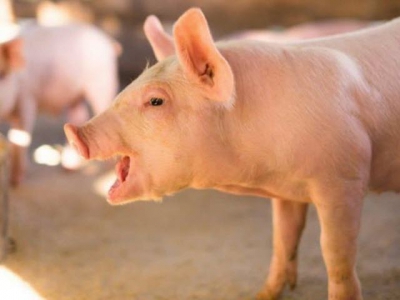FFAR, NPB funds research to detect, understand ASF virus

Collaborative research projects at Kansas State University and Iowa State University to study virus survival and diagnostic methodologies.
FFAR said the goal is to keep the U.S. free of ASFV.
The Foundation for Food & Agriculture Research (FFAR) and the National Pork Board (NPB) announced Oct. 22 that they have awarded $535,780 to research teams at Kansas State University and Iowa State University to study how the African swine fever virus (ASFV) survives and how to test pigs for the virus.
“We remain committed to investing pork checkoff funds in strategic ways, such as this collaboration to find new ways to protect our domestic swine herd from foreign animal disease threats,” said NPB president David Newman, a producer representing Arkansas. “Understanding how African swine fever survives can help us create better techniques for controlling the spread of this costly virus and reduce the odds of a domestic outbreak.”
Kansas State researchers will seek to understand how ASFV survives and continues to infect other animals in various environments, the announcement said. If scientists understand how the disease spreads, they will be better able to control, or even stop, the spread of this virus. Additional work at Kansas State will develop tests to detect ASFV, FFAR said, and a third project is creating diagnostic test to quickly test entire herds for ASF.
Iowa State researchers will focus on how best to identify foreign animal diseases at low prevalence in large commercial pens using oral fluid samples, the announcement said.
“There is no time to waste. We must work quickly, and through partnership with the National Pork Board, to drive solutions pork producers can use to detect and manage infected animals if the virus reaches the U.S. This research may be the key to dramatically reducing any potential spread of African swine fever,” FFAR executive director Sally Rockey said.
FFAR’s grant is being matched by funding from the National Pork Board, Cargill, Kemin, Purina Animal Nutrition and Kansas State University for a total investment of $535,780, the announcement said.
Có thể bạn quan tâm
 5 guidelines for alternative animal feed ingredients
5 guidelines for alternative animal feed ingredients Whether it is rye or copra meal, using a non-conventional ingredient requires attention to certain issues common to all alternative options.
 Low protein piglet diets require phenylalanine, tyrosine monitoring
Low protein piglet diets require phenylalanine, tyrosine monitoring Piglet diets with a low crude protein (CP) concentration are recommended when in-feed antibiotics are not used and diarrhea is likely to occur.
 Feed formulation: How to maximize corn in pig diets
Feed formulation: How to maximize corn in pig diets Understanding the finer aspects of using corn in pig diets can help reduce feed cost and improve the precision of nutrition, resulting in more efficient
 What is wrong with feeding pigs, poultry animal by-products?
What is wrong with feeding pigs, poultry animal by-products? Let's examine each case more closely because it is a topic that keeps surfacing, causing considerable concern and, in my opinion, more harm than good to all par
 Six pig, poultry alternative feed ingredients
Six pig, poultry alternative feed ingredients We constantly look for such novel ingredients to reduce cost and replace ingredients that are no longer available. Six pig, poultry alternative feed ingredients